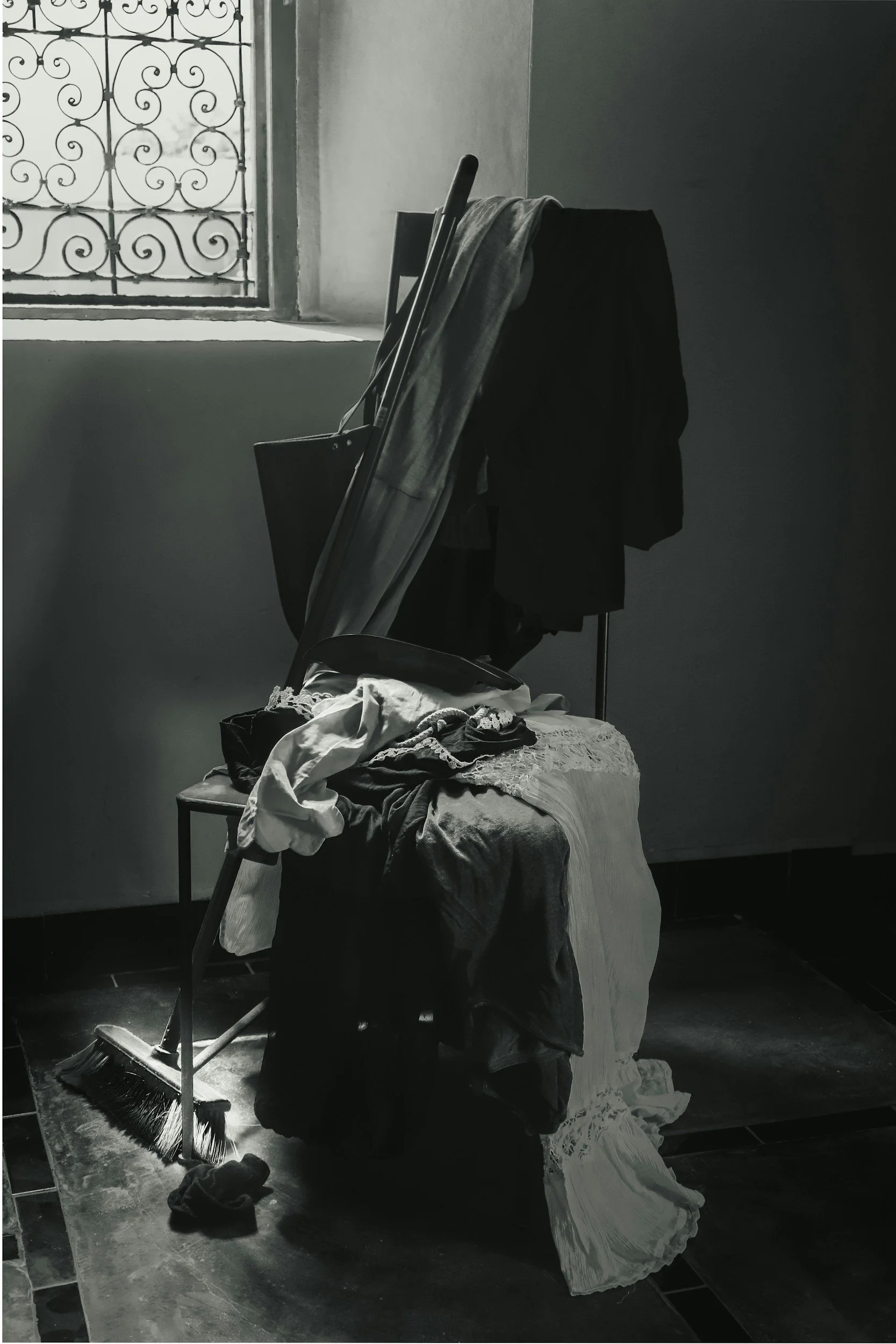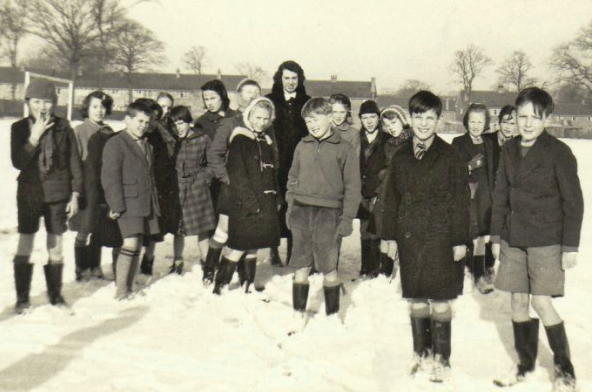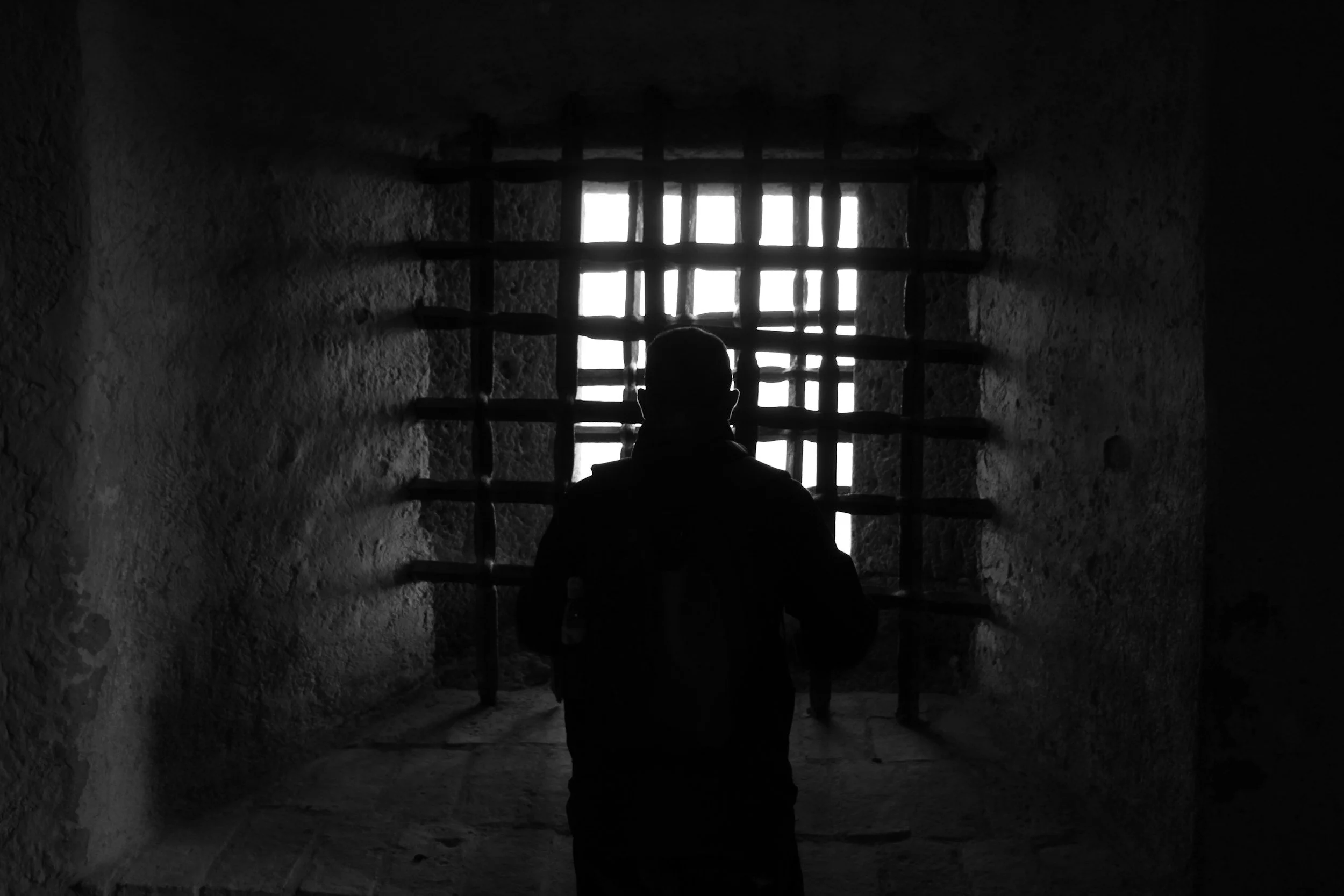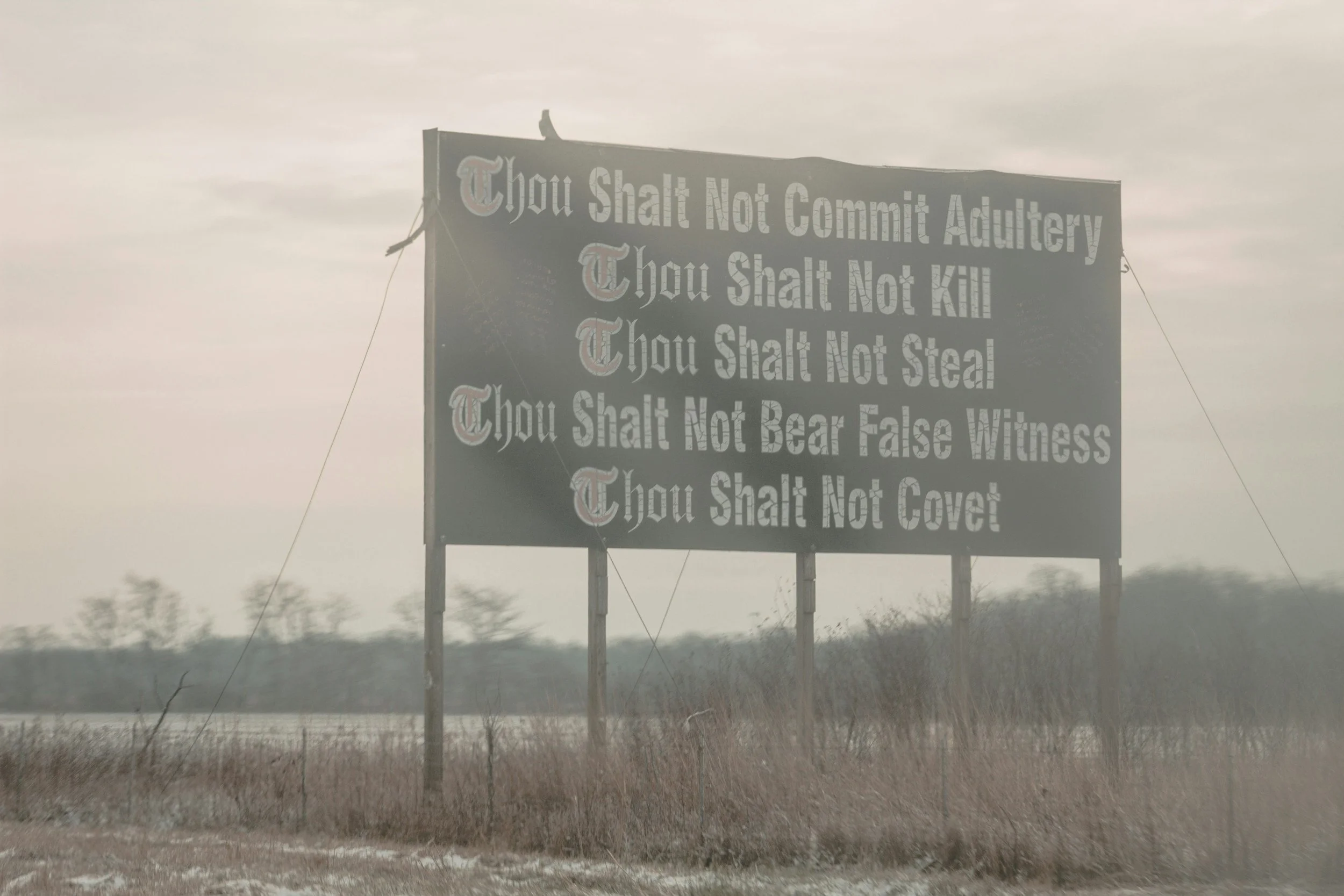Welcome to my blog...whatever image springs to mind, be it a hippopotamus, Tigger, red-haired Highland cattle, or a simple kitchen table, 'Unless a Seed' is a four-legged creature. My hope is that having read a Book Review, a Poem, or a What is a Christian? or some random post in Everything Else, you will be kind enough to leave a comment or a short reply. And I hope you enjoy reading its contents
Stripping Away Familiarity Proverbs 3 v 5&6
Nakedness is actually normal…isn’t it? But we have this clothing urge as well. But twice a day, at least, we get to see the truth!
Trust in the Lord with all your heart
And lean not on your own understanding
But in all your ways acknowledge Him
And he will direct your paths
Yes, of course, this can read like religious mumbo jumbo to agnostics or atheists, and an over-familiar verse to Christian believers.
Is there any need for comment? The words are plain enough. It’s not a parable or a prophecy. It’s not written poetically (although I do like the two words ‘lean not’…for me, that’s poetic). Putting it bluntly, it’s a radical challenge: the question is not whether it’s true, but whether, having believed the bible is God-breathed, you have found it to be true in your experience?
This morning, I read this verse for the umpteenth time and nodded with approval. Like an old friend, it possesses a comforting familiarity, but before I could sit back and relax, I was taken back to school for two further lessons.
I have never been to a striptease joint, but one is blessed with an imagination! And to be fair, don’t we all strip at least once a day, if not twice, minimum?
One piece of clothing followed by another is taken away, revealing the truth.
Truth 1. Heart. Trust in the Lord with the core of your being. It’s deeper than emotion, or thought, or motivations. Those are the surface waves of the soul. The heart is like the deep. It ignores thoughts that may conflict with the heart. It relegates raging emotions or numbness to a lower division. It stills the will, the terrible need to do something. The heart is trusting in the Lord when and only when, as in Psalm 23, He has made me lie down. ‘The Lord is my shepherd, I shall not want. He makes me to lie down…’
Truth 2. In all your ways, John. ‘I have ways, Lord?’ ‘Yes’. I sense a divine chuckle. He’s taken almost 68 years to show me this. I have ‘ways’. Here are some of them: Loud and confident people make me shrink. I have a multitude of ways of avoiding them, finding quieter places, going to the loo, sitting quietly, waiting for the storm to pass. I’m not a party animal. Almost as a contradiction, I have an instinct for leadership and form teams to accomplish a task. I make a cup of tea in a certain way; pronounce scones correctly (!); prefer to run into the sea than step in, toe by toe. Observational self-deprecating humour makes me laugh. I love Billy Connolly, but I also have a poetic/prophetic streak that demands some inner switch to flip – some might say left to right brain. I’m not sure. I have my ways.
Two pieces of familiar clothing stripped away.
It’s not simply that ‘acknowledging the Lord in all your ways’ means His direction comes first, even if it takes us beyond our comfort zones, but that the Lord has been with us all, in the formation of all of these things. ‘Our ways’ are what make us ‘us’ and not the next person. Our uniqueness. And, in Christ, there is a new ‘us’, a new creation…the essential you formed in the core of our being, our new hearts, being formed as the Spirit of Christ witnesses and communes with our new spirit, given to us in the New Covenant.
And he will direct our paths.
This is not some SatNav divinity, a guidance system from above the earth, from heaven as if heaven is a long way off. Or via a set of commands that we gird ourselves up to follow, come what may.
No, we are being discipled to live like Jesus. Relying on His voice within: ‘My sheep know My voice’, so that we end up being able to say to family, friends, work colleagues, neighbours, and a watching world ‘I only do what I see my father doing in heaven’. Well, we might not put it quite like that, or we’d appear to be religious nutters only capable of quoting scriptures like automatons or cult-like clones!
To any agnostics and atheists reading this, I challenge you to ask a believer or two about their experience with this verse. You may discover some intriguing stories! To any believer reading this who’s struggling, I struggle. I fail. I go off-piste. I’m often like a dog that hasn’t learnt to heel. But I know who has bought me and who is at work in me. It’s all grace. He calls me back, and on we go.
Last point. Trust is trust. It never changes. It’s standing at a bus stop waiting for the bus. It’s believing that what God has spoken is trustworthy and will come to pass. It’s swimming, knowing the water will support you. It’s believing the seasons will continue, or that tomorrow the sun will come up. ‘Trust in the Lord with all your heart’ when He says ‘He will direct your paths’.
Rolos
Life on the other side?
In the winter playground
The boy delves
In his pockets
Grey shorts over
Pink chapped thighs
As had all the others
December: break,
Ice and snow
Toggles and duffle coats
And bare shins
His thin gloves
Locates the target
A packet of Rolos
He unfurls the silver foil
Exposing dark brown circles
And, hand thrust out,
The Rolos are offered
To scraped knees
Footballs and wellington boots
In return
Impenetrable silence
No matched fingers
Extended to the silver foil
No swaps for sugar cigarettes
No words, no nods
A rebuff so irreversible
And dense as a vacuum
His first taste
Of estrangement
Of invisibility
Of finding the others
The shunned ones
Made rich with less
The Rolo lovers, those of
The Cave of Adullam
Dwellers to the East of Eden
Lepers with perfect skin
A kingdom of includers
Thawing the ice
Longing for Snow
I know when I’m old - when I don’t long for snow. So far so good! Boots are ready.
January
A month to long for snow
Empty blue skies
And fierce cold
Sharp, virus-killing cold
Snow drops
And crystal-clear air
Short days
To compress an excess of joy
February
To rob Christmas
Of Rosetti’s bleak midwinter
Here is grey shadow
And cold to be avoided
A shudder that no scarf
Can repel
Unless January’s prayer
Is answered in
Blizzards blasted
To the waiting Earth
And a new generation
Learn how to spell toboggan
And frozen hands
Launch endless missiles
A month that demands
An open fire
That scorns the industrialness
Of ugly rectangular radiators
Deep cries for dancing flames
The crack of logs
Of wet gloves, and scarves
Steaming their way to Tomorrow
All is quiet
Cars are hibernating
Just the trudge
Of boot on snow
Let no one wish for dirty slush
Eliminate ‘thaw’ from the lexicon
March
March can stay away
Its unwelcome longer days
A threat to…this
Enforced Sabbath
More Than a Barber
Usually a barber’s is a room full of chatter, radio noise, clippers, and traffic outside…not on this occasion
Booking the barbers online?
Feels vaguely feminine
Am I having my hair ‘done’?
Arrived on time
Pushed on the door
And sat down, alone
A silent one, his head
Still as a barn owl
Is in the chair
The absence of talk
Of footy, or Trump, or carburettors
Is an unusual interlude
And the silence
Like invisible honey
Circulates the room
Looking for anyone
Who wishes to
To enter in
Into the unknown.
In the background
The circumcision
Of surplus hair
Continues, the squeak
Of the barber’s shoes, the
Schink of blades
The inane radio
Saying nothing, oblivious
To the moment when
Confessions are made
Clues to some inner world
Left scattered on the floor
Forebodings, snip
Longings, snip
Hopes and dreams, snip
The barber,
Waterlogged
With our words
Like a priest,
Unburdens himself
Sighing into the night
Gifts
Something magic about a 3 year old grappling with wrapping paper
Become like little children?
Infants? Really?
So, on with the shorts
Sit cross-legged, for hours
Or lie on your back, feet
Up on the sofa
Pick your nose if you must
And daydream
Make faces
And odd noises
Plop your cheeks
And play hide and seek
Try so hard
To stay quiet and hidden
For five long seconds
Become three again
At the sight of wrapping paper
Be bubbly with excitement
And use your perfectly-formed
Three-year-old fingers
To prise up and away
All that Sellotape
Let your eyes
Grow larger than the Moon
And learn joy, learn love
Learn Amazing Grace
Learn that sweet sound
The music of heaven
That longs for you
Not to be stiff-necked
But let the tears fall
As you collapse
Back through the griefs
The broken-heartedness
The shields
That have not saved you
Hold your hands out
And see you are three again
Three at last! Three at last!
Thank God Almighty, we are three at last!
John the Baptist – a reset for 2026 Part 4: Prison
John the Baptist was beheaded. Why?
John the Baptist is often overlooked. The warm-up act before the entrance, stage-left, of the Messiah: Jesus of Nazareth, and eclipsed, as we all are, by the Word made flesh.
He is mentioned in all four gospels, but here’s Luke’s account, which is the fullest.
John said to the crowds coming out to be baptised by him, ‘You brood of vipers! Who warned you to flee from the coming wrath? Produce fruit in keeping with repentance. And do not begin to say to yourselves, ‘We have Abraham as our father.’ For I tell you that out of these stones God can raise up children for Abraham. The axe is already at the root of the trees, and every tree that does not produce good fruit will be cut down and thrown into the fire.’
The people were waiting expectantly and were all wondering in their hearts if John might be the Messiah.
John answered them all, ‘I baptise you with water. But one who is more powerful than I will come, the straps of whose sandals I am not worthy to untie. He will baptise you with the Holy Spirit and fire. His winnowing fork is in his hand to clear his threshing floor and to gather the wheat into his barn, but he will burn up the chaff with unquenchable fire.’
But when John rebuked Herod the tetrarch because of his marriage to Herodias, his brother’s wife, and all the other evil things he had done, Herod added this to them all: He locked John up in prison.
Part 4: Prison
John, of course, was beheaded. But this was only made possible due to his arrest and imprisonment. So it is the cause of his arrest that we end this short series.
The authorities kept a watchful eye on John the Baptist. They sent Pharisees and Sadducees to spy on this growing movement, but did not make any move to thwart his ministry.
Spiritually, though, their position was quite clear, ‘The Pharisees and the lawyers rejected the purpose of God for themselves, not having been baptised by John’ Luke 7v30
The domestic political power structures in Israel existed within the framework of the Roman Empire, headed by Pontius Pilate. Under Roman rule, the Jewish ruling council, the Sanhedrin, consisted of chief priests, elders, and scribes belonging to one of two religio-political streams: the Pharisees or the Sadducees.
Herod Antipas, son of Herod the Great, had jurisdiction over part of Israel, and it was Antipas who arrested John. John was permitted to preach to the people in general about sins and forgiveness and carry out baptisms. The promise of a Messiah to arise was somewhat disturbing, but this wasn’t the first time a Messiah figure had been heralded. None of this unduly moved Herod, or the Sanhedrin, or Pilate.
However,
‘Herod arrested John and bound him in prison for the sake of Herodias, his brother’s wife, for he had married her; John had said to Herod ‘It is not lawful for you to have your brother’s wife’’ Mark 6v17,18
The general morals in Roman and Jewish society at the time may have excused Herod, or they may have turned a blind eye, or shrugged and said quietly, ‘the rich and powerful make their own rules’, and so on. Divorce was commonplace. It happens. Why object?
Is good judgement formed around the prevailing moral fashions of the age we live in, or by the law of Moses?
What is the basis of our sense of right and wrong? Our moral standards – where do they originate?
Paul, when considering the Law of Moses, wrote ‘the law is holy…and just, and good’ Romans 7v12
This is not the place to write at length about the replacement of the law with the ‘newness of the Spirit’ v6. Suffice to say, however, the law is good, but it can’t produce the righteousness it demands of us; it really serves to highlight our inability, through sin, of keeping to any moral code, especially the law (of Moses).
In Britain, for some years, the phrase ‘British values’ has been used as a precis of our uncodified constitution built around ‘fair play, common decency, free speech, democracy’ and so on. This is a mirage. Those elements of our unwritten constitution have been forged over centuries in the fire of the Law of Moses and the Commandments as summarised by Jesus in the New Testament. ‘British Values’ is a misnomer. If we have any values, they are enshrined in the Ten Commandments and other laws contained in the Law of Moses as written mainly in Leviticus and Deuteronomy.
Even the avowed atheist Richard Dawkins has, in recent years, acknowledged the role of Scripture in shaping his moral outlook, what he considers right and wrong. Now he calls himself a ‘cultural Christian’, recognising the debt he – and all of us - owe to the Bible.
When John applied the moral standards of the Law to Herod, not the moral standards of the day, and called him to repentance, it cost him his freedom - and his life.
As we meditate on the Law, it will challenge us whenever we attempt to take the throne away from Christ. I have sometimes likened the Christian life as losing every argument with Jesus. Thank God.
In matters of money, sex, and power, our faith will be tested and we may fail. But our faith cannot be in ourselves, our ability to obey the law – that is the flesh again attempting to be in charge. No, we must walk in the Spirit.
‘But now, we have been delivered from the law, having died to what we were held by, so that we should serve in the newness of the Spirit and not in the oldness of the letter’ Romans 7v6
John the Baptist – a reset for 2026 Part 3 (i) baptism of fire (ii) judgement here and now
Imagine carrying a gold bar in your pocket…as Christian believers we carry the baptism of the Spirit and fire, if we gave received what John prophesied
John the Baptist is often overlooked. The warm-up act before the entrance, stage-left, of the Messiah: Jesus of Nazareth, and eclipsed, as we all are, by the Word made flesh.
He is mentioned in all four gospels, but here’s Luke’s account, which is the fullest.
John said to the crowds coming out to be baptised by him, ‘You brood of vipers! Who warned you to flee from the coming wrath? Produce fruit in keeping with repentance. And do not begin to say to yourselves, ‘We have Abraham as our father.’ For I tell you that out of these stones God can raise up children for Abraham. The axe is already at the root of the trees, and every tree that does not produce good fruit will be cut down and thrown into the fire.’
The people were waiting expectantly and were all wondering in their hearts if John might be the Messiah.
John answered them all, ‘I baptise you with water. But one who is more powerful than I will come, the straps of whose sandals I am not worthy to untie. He will baptise you with the Holy Spirit and fire. His winnowing fork is in his hand to clear his threshing floor and to gather the wheat into his barn, but he will burn up the chaff with unquenchable fire.’
But when John rebuked Herod the tetrarch because of his marriage to Herodias, his brother’s wife, and all the other evil things he had done, Herod added this to them all: He locked John up in prison.
(i) Baptism of fire, and (ii) Judgement here and now
Really, these subdivisions can be run together. I’ve only separated them because the phrase ‘baptism of fire’ is so well-known.
There is, of course, some validity in co-opting this biblical phrase for impending trouble, but it is sharper than that. Far sharper. We are talking about judgement. Not a universally popular subject. Immediately, when we hear the word ‘judgement’ within the scope of religion, our minds migrate to The Day of Judgement, or eternal resurrection or damnation. I am certainly not objecting to this - except in this way: God is eternal, and therefore His judgement is eternal. From our temporal space and time perspective, that means that whatever eternal judgement is, it affects the past, the present, and the future.
John the Baptist Part 3 is a look at eternal judgement through the biblical notion of ‘today’.
John the Baptist foresaw that the ministry of the Messiah would be characterised by two baptisms – not in water like his, but in the Holy Spirit and also in fire. That in the future believers would receive the gift of the Holy Spirit and would walk through life ‘saturated’, ‘wet through’, ‘baptised’ in the Spirit. No longer would they have to make a pilgrimage to the temple; they would be temples of the Holy Spirit. Temples on the move.
But he also said they would be ‘baptised with fire’. On the Day of Pentecost, of course, there were flames of fire. Signs that each believer was alive with the judgement that is found in Christ.
We’ve already seen how Simeon prophesied the manifestation of this judgement through Jesus: ‘…this child is destined for the fall and rising of many in Israel…that the thoughts of many hearts may be revealed’ Luke 2v34,35
Jesus himself spoke about the sword of judgement: ‘I came to send fire on the earth…do you suppose I came to bring peace on earth? I tell you, not at all, but division…’ Luke 12v49-53
One example of this division was at Nazareth in the synagogue that he attended from childhood. When he was handed the scroll and read from Isaiah, it says ‘the eyes of all who were in the synagogue were fixed on him’ Luke 4v20 nevertheless, when He confessed his Messiahship and when he reminded the congregation that in Elijah’s day it was the Gentile widow who had welcomed him, the congregation rose against him ‘they led him to the brow of a hill…that they might throw Him down over the cliff’.
During the Day of Pentecost, when the crowd gathered due to the sound of a rushing wind and the sight of flames of fire on the believers’ heads, despite hearing the newly baptised in the Spirit believers ‘speaking in our own languages about the wonderful works of God’ some mocked, ‘they’re full of new wine’, in other words drunk. But Peter replied, ‘These are not drunk, as you suppose, it is only 9 o’clock in the morning’ Acts 2v11-15.
Division. The account goes on to say that 3000 were baptised that day. But opposition also grew.
John prophesied about this baptism of fire as a present-day divisive fire of judgement and the consequences of accepting or welcoming Christ or rejecting Him.
‘His winnowing fork is in his hand to clear his threshing floor and to gather the wheat into his barn, but he will burn up the chaff with unquenchable fire.’
This agricultural picture would have been well-understood until the era of mechanisation with combine harvesters. The wheat grains are heavier than the husk around the grain, so when a winnowing fork threw them both up into the air, any wind would blow the chaff away, leaving the grain to fall to the ground, where it could be collected and stored in a barn. The chaff is also collected and burnt.
The separation is therefore a picture of judgement.
We can see this in action through the apostles, for example, with Paul and Barnabas. In Acts chapter 13, they had been preaching in Antioch on the Sabbath but ‘when the Jews saw the multitude, they were filled with envy…and opposed the things spoken by Paul (v45)
‘Then Paul and Barnabus grew bold and said, ‘It was necessary that the word of God should be spoken to you first: but since you reject it, and judge yourselves unworthy of everlasting life…we turn to the Gentiles’
In John chapter 5, Jesus deals with ‘judgement now’ in tension with ‘the day of judgement’.
‘Truly I say to you, he who hears my word and believes in Him who sent Me, has everlasting life, and shall not come into judgement, but has passed from death into life. Truly I say to you, the hour is coming and now is when he dead will hear the voice of the Son of God, and those who hear will live’ v 24,25
This is both a NOW and a THEN resurrection to life or condemnation. Once we believe we experience a ‘resurrection’ from death to life. It’s not the complete work of resurrection, but it is the irreversible start.
Charles Wesley caught hold of the immensity of this transformation in And Can It Be?
Long my imprisoned spirit lay/Fast bound in sin and nature’s night/Thin eye diffused a quickening ray/I woke, the dungeon flamed with light/My chains fell off, my heart was free/I rose, went forth and followed Thee
So, it is an awesome thing to be a Christian. To carry within us the baptism in the Spirit and fire. Just as John prophesied, as we give witness and tell our story, some believe and some will not. Division. It is not that we are seeking opposition and division; we are only too aware of how receiving Christ has been an act of mercy, and receiving the gift of the Holy Spirit has nothing to do with our worthiness. But John warns us, as Jesus did later, that we are sheep sent out among wolves. The wolves howled against Jesus in Nazareth, despite their synagogue attending religiosity. But he walked free. It wasn’t his time.
As we continue in Christ, Christ living out His life in our form, we will see the chaff blown away and the grain gathered into His barn. We cannot have one without the other.
John the Baptist – a reset for 2026 Part 2 - Baptism in the Spirit
At the end of my piece is a YouTube testimony of a Sountern Baptist pastor who received the baptism in the Spirit, as prophesied by John the Baptist, many years after believing. It transformed his ministry.
John the Baptist is often overlooked. The warm-up act before the entrance, stage-left, of the Messiah: Jesus of Nazareth, and eclipsed, as we all are, by the Word made flesh.
He is mentioned in all four gospels, but here’s Luke’s account, which is the fullest.
John said to the crowds coming out to be baptised by him, ‘You brood of vipers! Who warned you to flee from the coming wrath? Produce fruit in keeping with repentance. And do not begin to say to yourselves, ‘We have Abraham as our father.’ For I tell you that out of these stones God can raise up children for Abraham. The axe is already at the root of the trees, and every tree that does not produce good fruit will be cut down and thrown into the fire.’
The people were waiting expectantly and were all wondering in their hearts if John might be the Messiah.
John answered them all, ‘I baptise you with water. But one who is more powerful than I will come, the straps of whose sandals I am not worthy to untie. He will baptise you with the Holy Spirit and fire. His winnowing fork is in his hand to clear his threshing floor and to gather the wheat into his barn, but he will burn up the chaff with unquenchable fire.’
But when John rebuked Herod the tetrarch because of his marriage to Herodias, his brother’s wife, and all the other evil things he had done, Herod added this to them all: He locked John up in prison.
Baptism in the Spirit
Baptism, typically, requires three components: the person administering the baptism, the baptismal candidate and the element into which the candidate is to be baptised.
John prophesied that the Messiah would baptise not with water, but with the Holy Spirit – in other words, true Christianity has nothing to do with outward actions such as prayer, or hymn singing, church attendance, being born in a ‘Christian nation’ or being related to a Christian believer, or bible knowledge. What John foresaw was something radically new; men and women baptised in the Holy Spirit.
True Christianity, therefore, is all about being immersed, soaked in, plunged into the Holy Spirit, God Himself.
When Peter preached to Cornelius’s household, he summarised Jesus’s public ministry as:
‘God anointed Jesus of Nazareth with the Holy Spirit and with power, who went about doing good and healing all who were oppressed by the devil, for God was with Him’ Acts 10v38
He demonstrated the life of a man baptised in the Spirit, but we don’t read of Jesus baptising the disciples and His followers in the Holy Spirit until after the resurrection.
‘And being with the disciples. Jesus commanded them not to depart from Jerusalem, but to wait for the Promise of the Father, ‘Which,’ he said, ‘you have heard from Me; for John truly baptised with water, but you shall be baptised with the Holy Spirit not many days from now’ Acts 1v5
The disciples – who numbered approximately 120 by this time – did as they were commanded; they waited, men and women.
Ten days later, Luke records, ‘When the Day of Pentecost had fully come, they were all with one accord in one place…flames of fire sat on each of them, and they were all filled with the Holy Spirit and began to speak in other languages as the Spirit enabled them’ Acts 2 v1-4
A large crowd gathered to hear and see what was going on, and Peter stood up to preach the first sermon of the New Testament after the resurrection and ascension of Christ. At the end of which he said: ‘Repent, and let everyone of you be baptised in the Name of Jesus for the forgiveness of sins, and you shall receive the gift of the Holy Spirit’ Acts 2v38
I think we all know instinctively what repentance looks like. All excuses exhausted, finally we admit what we’ve done and ask for forgiveness, so that the breach in the relationship can be mended, and the tension and strain can drain away. Here, the principal relationship is between us and God, who is holy. We know that God knows, there is no hiding place, and we admit our need for cleansing, for forgiveness, and redemption.
The baptism (in water) is a sign that Jesus has indeed forgiven us, and our sins have been washed away.
But Peter doesn’t stop there. True Christianity is not limited to the forgiveness of sins, as wonderful as that is, it involves receiving a gift - the gift of the Spirit. We come to Jesus for Him to baptise us with the Holy Spirit.
Before John the Baptist, Ezekiel had foreseen this day and prophesied:
‘I will give you a new heart and put a new spirit within you, I will remove the heart of stone and give you a heart of flesh. I will put My Spirit within you and cause you to walk in my statutes, Ezk 36v26,27
Paul put it like this:
‘If anyone does not have the Spirit of Christ, he is not His’ Romans 8v9
True Christianity, therefore, is wholly dependent on receiving the gift of the Spirit. Everything we do after receiving the Spirit of Christ (worship, prayer, church, loving our neighbour) flows from this. Later in the same chapter, Paul writes: ‘for as many as are led by the Spirit of God, these are the sons of God’ v14
The repentance-baptism-gift of the Spirit is ideally a fay one experience for every new believer. In practice this is not always the case.
As I write this, a remarkable example of a Southern Baptist pastor receiving the baptism of the Spirit many years after believing is described in an interview. It transformed his ministry.
The link is below.
Revival Radio TV: North Georgia Revival
John the Baptist – a reset for 2026
A fresh look at the message of John the Baptist
Part 1
(i) Brood of vipers – not just the Pharisees and Sadducees
(ii) Coming wrath – the inadequacy of Jewish lineage
John the Baptist is often overlooked. The warm-up act before the entrance, stage-left, of the Messiah: Jesus of Nazareth, and eclipsed, as we all are, by the Word made flesh..
He is mentioned in all four gospels, but here’s Luke’s account, which is the fullest.
John said to the crowds coming out to be baptised by him, ‘You brood of vipers! Who warned you to flee from the coming wrath? Produce fruit in keeping with repentance. And do not begin to say to yourselves, ‘We have Abraham as our father.’ For I tell you that out of these stones God can raise up children for Abraham. The axe is already at the root of the trees, and every tree that does not produce good fruit will be cut down and thrown into the fire.’
The people were waiting expectantly and were all wondering in their hearts if John might be the Messiah.
John answered them all, ‘I baptise you with water. But one who is more powerful than I will come, the straps of whose sandals I am not worthy to untie. He will baptise you with the Holy Spirit and fire. His winnowing fork is in his hand to clear his threshing floor and to gather the wheat into his barn, but he will burn up the chaff with unquenchable fire.’
But when John rebuked Herod the tetrarch because of his marriage to Herodias, his brother’s wife, and all the other evil things he had done, Herod added this to them all: He locked John up in prison.
John travelled up and down the River Jordan baptising all who came to him. The Greek word baptism means to immerse or dip. None of the baptisms recorded in the New Testament are of babies being sprinkled by a minister or priest in a font or a baptistry – far too sanitised for the mostly open-air ministries of John, then Jesus, and the apostles of the New Testament era.
Luke records the buzz, ‘Is John the promised Messiah?’, speculation was running rife.
When a whole population is stirred, the authorities send their spies, and ordinary, everyday people flock. An unease is in the air.
John addressed the spies and the genuinely curious equally:
John said to the crowds coming out to be baptised by him, ‘You brood of vipers! Who warned you to flee from the coming wrath? Produce fruit in keeping with repentance. And do not begin to say to yourselves, ‘We have Abraham as our father.’ For I tell you that out of these stones God can raise up children for Abraham. The axe is already at the root of the trees, and every tree that does not produce good fruit will be cut down and thrown into the fire.’
(i) Brood of vipers - not just the Pharisees and the Sadducees
Whereas Matthew’s gospel suggests that John reserved this sharp criticism for the Pharisees and the Sadducees, Luke’s gospel makes it plain that he did not. He applied it to all who came to him.
It is the unsavoury task of the prophet, just like an honest physician, to announce to the elite and the poor alike that they are infected with a deadly disease, the cause of their present disfigurement. In the case of the prophet, the disease is sin. The effect of sin is to disfigure a person spiritually so that they rebel against their creator from the heart. They are in a state of spiritual death and estrangement from God.
And yet, within this diagnosis, there is hope. ‘Who warned you to flee from the wrath to come?’ This is not a rhetorical or theoretical question. For those who came to John with no intention to repent, the answer is plain: their line managers in the evil pyramid of religio-political power that would one day arrest and call for the execution first of John, and then Jesus, had sent them as spies. Genuine seekers, however, were motivated by conviction and were responding to the loving call of God through John to baptism.
A doctor pronouncing a diagnosis and treatment is not only acting honestly but with true love of neighbour. John’s words may seem sharp, but they are with loving intent.
(ii) the coming wrath – the inadequacy of Jewish lineage
We could telescope John’s reference to the coming wrath way off to the future Day of Judgement: ‘the day when God will judge the secrets of men by Jesus Christ’ (Rom 2v16), but in the context of the passage referring to the coming Messiah, the wrath that John announced had arrived.
A cursory reading of the Gospels will reveal just how divisive Jesus was. One of his pronouncements against the Pharisees was ‘Let them alone, they are blind leaders of the blind…both will fall into a ditch’ Matthew 15v14
By AD 70, the nation of Israel, under the religio-political leadership of the Herodians and the Sanhedrin, the ruling council made up from Pharisees and Sadducees, was dismantled. Jerusalem and the temple were destroyed, reduced to the Western or ‘Wailing’ Wall that we see today, the people massacred, and survivors scattered. Also, by AD70, the gospel had reached Rome, and those who believed in the resurrected Messiah had grown into a great nation without borders and continued to spread across the whole globe.
When Simeon saw the child Jesus in the temple, he prophesied that ‘this Child is destined for the fall and rising of many in Israel…that the thoughts of many hearts may be revealed’ Luke 2v34,35. John had made sure his audience, genuine or not, understood that Jewish lineage, being ‘sons of Abraham’ by physical descent, does not blind God to the true condition of the human heart.
John’s baptism in the water of repentance was a prophetic sign of the true baptism to come that would be administered not by John or his disciples, but by the coming Messiah: a baptism of fire and the Holy Spirit.
________________
In Part 2 we will examine is an arithmetic equation as sure as 2+2=4.
True Christianity is the baptism of the Holy Spirit…not an optional extra for Pentecostal or Charismatic believers.
It is like turning the key in the ignition to start the spiritual life of a Christian.
Psalm 131 - A Song of Ascents
Lord, my heart is not haughty,
Nor my eyes lofty.
Neither do I concern myself with great matters,
Nor with things too profound for me.
Surely I have calmed and quieted my soul,
Like a weaned child with his mother;
Like a weaned child is my soul within me.
O Israel, hope in the Lord
From this time forth and forever.
Self-soul-spirt
If you’re more attuned to the New International Version (NIV) you’ll see that ‘soul’ has been replaced with ‘self’. A semantic difference only or a profound shift in meaning? If you think about how often we use the word self or ‘myself’, you’ll begin to get a feel for how old-fashioned and other-worldly the word soul has become in everyday parlance.
It mirrors the move away from using the term ‘creation’ towards ‘universe’, from a divine to a materialistic perspective. Approximately 35% of the UK population are atheists, and 35% believe in God. Only 13%, however, are strict materialists, ie no spiritual element to existence.
Biblically, the soul refers to the mind (the ability to think), the emotions (the ability to feel) and the will (the ability to act), and together make up the essential personality of an individual created by God. The spirit is a deeper realm that communes with God.
Verse 1.
Lord, my heart is not haughty,
Nor my eyes lofty.
Neither do I concern myself with great matters,
Nor with things too profound for me.
Taken together with Psalm 123 v 2 ‘..as the eyes of servants look to the hand of their masters…so our eyes look to the Lord our God’ we might be tempted to think the Bible is advocating a passive, anti-intellectual docility, reducing us to obedient slaves, incapable of thought. A cursory study of OT biblical characters up to John the Baptist, then Jesus Himself, and on into the lives of the apostles, will correct this misconception.
The secret lies in a paradox. Jesus said ‘The Son can do nothing of his own accord, but only what he sees the Father doing. For whatever the Father does, that the Son does likewise’ John 5v19
Jesus poured out spiritual teaching that has profoundly changed the world, mostly through simple story-parables. He healed the sick, raised the dead, took 12 men and fashioned them into apostles that fulfilled Israel’s calling to be a light to the Gentiles, and spread the worship of the God of Abraham, Isaac, and Jacob around the globe, and rose from the dead.
This has become our calling and the essence of Psalm 131 v1.
At the close of 2025, it’s a good time to review our lives – are we doing only what we see the Father doing? Are we committing ourselves, as servants of God, only to things that we see the hand of our master calling us to? Do some things need to be pruned? Less may well be more!
we are called to quieten the chatter of our soul
Verse 2
Surely I have calmed and quieted my soul,
Like a weaned child with his mother;
Like a weaned child is my soul within me.
This is the exact opposite of the Buddhist version of meditation, when the goal is to empty the mind, look inward to pure awareness, and clear the mind of self. In verse two, we’re instructed to deal with an over-active soul!
Our thinking can become the be-all and end-all of our existence, and we become reliant on our cerebral abilities. Or we become excessively emotional, and the emotions overwhelm our ability to commune with God or think clearly. Or we become wilful, making decisions without thinking them through or considering their emotional impact on others.
In verse two, we are called to quieten the chatter of our soul, recognising its vital and wonderful place within us, but also recognising that it needs to serve the spirit and not become its master.
The picture of a contented infant having been filled with milk is the biblical version of meditation. Meditation is when we stop the chatter of the soul and commune with God to receive from the fullness of God, not the emptying of our minds.
‘And of His fulness, we have all received, grace upon grace’ John 1v16
Verse 3
O Israel, hope in the Lord
From this time forth and forever.
This is specifically addressed to Israel and may, of course, be applied to Jews around the world, whether in Israel or its diaspora. Through Christ, we Gentile believers are now included in the blessings of Israel, ‘grafted in’, as Paul teaches in Romans 11.
Psalm 131 turns out to be a short discipleship training manual! We learn that to be submissive to God as Lord and Master is not a call to passivity but to do only what we see the Father doing. Our focus, our hope, therefore, is always directed at God, not ourselves. We are not independent of God; our hope comes from God. In fact, the more our understanding grows, our hope is intimately entwined with God’s hope.
Lastly, Psalm 131 is the penultimate Psalm of Ascent; Psalms that were sung on pilgrimages to Jerusalem and, specifically, the temple to worship God. The ‘quietening of the soul’ then, is the final preparation before encountering God’s presence, directly. In the Western world, we are bounced between relying too heavily on rational thinking, empathetic emotion, and worthiness through effort.
None of these three attributes or abilities is without value, but Psalm 131 calls us to a deeper communion - with God Himself.
Limits to Free Speech and the Case of Alaa Abd el-Fatah
Are there limits to free speech and rights of citizenship?
When pro-Palestine marchers chant ‘Free Palestine from the River to the Sea’ – they are expressing opposition to the State of Israel and expressing an anti-Zionist viewpoint that calls for the elimination of Israel.
To be clear, they are proposing a one-state solution. Hamas, Hezbollah, and the Houthis, ISIS and all other aligned forces are not seeking peace with Israel and a two-state solution. Their aim is two-fold (i) to eliminate Israel and (ii) form a one-state solution called Palestine, within which Jews would have their rights of self-determination revoked.
The unholy alliance of far-left Marxists – who oppose Israel, believing it to be a colonial outpost of capitalist America, and militant Muslims – who oppose Israel on ideological grounds, is antisemitic and, essentially, genocidal in its political vision.
Now we have the case of Alaa Abd el-Fatah, who has apologised for his hateful antisemitic and anti-British comments. Two main political parties, the Tories and Reform, have called for him to be stripped of his British citizenship and deported.
However his case is resolved, the combination of the pro-Palestinian marches, el-Fatah’s comments, the attack on the synagogue in Manchester, and the conviction of two Muslim men, Walid Saadaoui and Amar Hussein, who planned to kill as many Jewish people as they could in a gun attack in Manchester, is forcing a review of the limits of free speech and citizenship rights. The brutal killing of Jews on Bondi Beach in Australia on December 14th shows how urgent these matters are.
Free speech
Should free speech be curbed if the purpose of the message is to limit the free speech of others, for example, calling for the death of Jews or the police?
Citizenship
And should citizenship rights be withdrawn from those who are clearly promoting hatred of Britain, sedition, and the overthrow of the State
These are questions facing Britain, and, specifically, the Prime Minister, Sir Kier Starmer.
The bible tells us to pray for all those in authority. This is such a time.
Prayer is not a weak response. It is the expression of unease, grief, anger, frustration, and a longing for justice brought before the throne of God, the ultimate authority. We may kneel, or stand, or raise our hands to heaven – all are in the Bible and reflect differing humble attitudes on behalf of the person praying. We may pray in silence or raise our voices.
Prayer is not a one-way street; it’s a dual carriageway. Who put that unease in your heart to cause you to pray? We should not be surprised if God speaks. Jesus said, ‘My sheep know My voice’. Sometimes that voice can be loud, but often it’s a small, quiet voice we hear in our hearts, often accompanied by a sense of peace even in the most trying of circumstances.
He is not far off. He is near. In fact, the Bible teaches that He will be found when we seek Him with all our hearts. Let’s open our hearts and pray.
Running on Empty – the new normal
I very very nearly ran out of diesel…
On Friday afternoon, I was driving home from Hanham to Winscombe. The journey to Hanham earlier had been increasingly fraught. I thought I’d set off in good time, but was 30 minutes late arriving...another story. I hate being late.
I decided to take the country route back to avoid the traffic. At the back of my mind were the last-minute preparations needed before the neighbours were due to arrive for Christmas drinks.
On the way to Hanham, the car had already beeped at me; its petrol gauge bouncing into the red. On the way back, my mind was elsewhere, thinking about the evening, and I was enjoying the country route. At some point, somewhere deep within a small voice, not the beep, started talking. It had three things to say:
1. You’re going the wrong way
2. Look at the petrol gauge
3. Look at your phone
Stress rising, I found a small road I could pull into. Phone on 1%. Diesel had been right at the bottom for a few miles by that time. And, my 1% phone satnav map confirmed I was heading East, not West.
My mind and my spirit were not enjoying their antagonistic conversation. My mind was filing through various disaster scenarios, rescue phone calls, asking whether I had a petrol can, preparing me for the worst. My spirit, on the other hand, was calling on God. That familiar feeling of utter dependency, black humour, feeling very silly and vulnerable, and yet knowing this, occasionally, is the path we unwittingly must take…and I had.
Hooking up an older Satnav, not my 1% phone version, I headed in the right direction. Less than a quarter of a mile up the road, a petrol station, appeared. It felt like manna from heaven, as if it had just been built and downloaded to the planet for me! All that worry, self-recrimination, apologising to the Almighty, calling on Him for mercy…now joy, relief. And £30.00 never so joyfully spent!
A story to tell for the blog? Maybe.
A parable? Most certainly, yes.
We make a terrible mistake if we absorb too readily the ‘Hollywood Jesus’ whose clothes are slightly better quality than those worn by the others around him. Or he’s a tad taller. Or more handsome, his beard trimmed that bit closer than Peter’s. Hollywood Jesus has secret powers of healing, deliverance, and raising the dead, quite apart from his sheer courage, and unblinking blue eyes. The epitome of Zen-calm, He is a hero, facing down death and escaping from the tomb.
That’s a false image. The New Testament has a radically different perspective:
‘Christ Jesus…being in the form of God…emptied Himself, taking the form of a servant, and coming in the likeness of men’ Philip 2 v 5-7
Jesus ran on empty.
I suspect he knew this in a deeper and fuller way than any of us can imagine. I had a taste of it in the car. A reminder that self-sufficiency is a form of delusion. And a glimpse of new light shed some on the subject.
Coming out of the Covid pandemic, there was much talk of a ‘new normal’.
Running on empty is the new normal.
It is our position in Christ if we are a Christian believer.
It is the Sermon on the Mount in real life, not an ideal that is just out of reach.
To paraphrase: ‘Blessed are the empty, they shall be filled’.
Jesus ran on empty
This is what Jesus modelled for us. Empty yet filled. The words of the parables, the power to heal, the courage to face opposition, the triumph over the grave – none of this came from His fullness, His ability. He had no secret power; it all came from the One who filled Him.
We yield any remaining thought that we are in control. We are called to faith, not self-sufficiency. We lean not on our own understanding but trust in the Lord with all our heart. We have been crucified with Christ; it is no longer I who live but Christ who lives within me. The life I now live, I live by the faith of the Son of God, who loved me. We are dependent on God, who revealed ‘His Son in me’ to Paul.
God does not require us to be full. To be clever. To be successful emotionally or economically. He does not require a cv to give us a task. God knows a secret. The secret His Son Jesus demonstrated to the world: we are designed to run on empty. All day. Every day.
Jesus said, ‘Freely, freely you have received, freely give’.
This is not a self-help wisdom from a spiritual guru. He emptied Himself and was filled by God. He received freely, and He gave freely. This is our calling.
Of course, I can laugh at myself. My incompetence. My inattention. Even the word ‘My’.
That small voice is still speaking:
1. You’re going the wrong way – the opposite direction, in fact
2. Look at the petrol gauge
3. Look at your phone
In other words, He calls us back to ‘emptiness’, which is the right direction, not depending on our own abilities. Our fuel gauges are in good health if the needle is on empty. And my phone? It represents you spirit, the origin of that small inner voice, built for two-way conversations, my heavenly Father to me, His son, and from me to my Heavenly Father.
Merry Christmas
I hope you don’t run out of petrol/diesel, but then again…
Guitar String
Restringing a guitar…if you haven’t witnessed it, it’s deeply spiritual
Fingertips prise open
The waxed end of a packet
And fish out a thick E string
Golden, reflecting any light
It could find
I thread its narrow end
Through an aperture
The other bulbous end
Planted in the soil of the guitar
Out of sight
Flexed between two ends
Time wound me, tuned me
Turned metal into music
But you were with me
When time took its toll
Dulled now, flattened
Stretched, not broken
Requiring attention
Careful hands return
To cleanse and retune
Old Man Quinney
Quinney’s Garage and Petrol Station…part of my childhood…and a bygone era
I’d be sprawled on the back seat
Beltless and free
When small, perched on a child’s seat
A clear view of the wild
Speedometer reaching 50
And feet playing with pedals
In front, a parent
Winding down a dirty window
And old man Quinney
Leaning in
His unshaven chin
Wobbling with the effort
“Fill her up. Four star”
Words I’d hear like a mantra
Watching the petrol ball bobble
And numbers roll round
Gallons and pounds, just like
The one-armed bandit at the golf club
Only winners here
As the pleasant fumes invaded
The Zephyr Six:
Money handed over, a brown
Ten bob note, and change given
And cheerfulness
Now the age of my father
I speak to no one
I can’t remember when I
Last talked to someone I paid
Exchange is a series of beeps
Before I belt home
Master’s in Creative Writing Update: 11.30 on Thursday 11th December.
Work, Rest, and Play
It’s an odd feeling and amusing.
Odd in that I’ve rarely felt so nervous as a few minutes ago, submitting two essays to Exeter University. The umbilical cord is cut. The two babes: a short story and a self-reflective essay, are winging their electronic way to my tutor’s inbox for her and a.n.other to mark and moderate.
And amusing, as, apart from a huge sense of nervous relief, my second reaction is to tap away on this ageing laptop and write about it! You’d think I’d have reached some sort of saturation point with writing!
Here’s the reality.
A sense of incredible weariness getting off the train yesterday evening. The kind of weariness that forces the surrounding world to recede into the background so far that the funniest joke or most tragic of incidents would barely register a flicker on my face.
Home, and switch into Chemistry A-Level tuition mode. Energy returning after a cuppa and toast. It seems that the brain has compartments. I’m fully awake now, enlivened not by the rules of grammar but by discussing the purpose of nucleophilic addition of hydrogen cyanide in situ to carbonyls with student A.
Bed. Slept through to 5. Up, usual routine followed by a return to the two essays. By 9, I was drowsy and crawled back into bed for an hour straight. Deep sleep.
In the following hour, awake again, finishing touches made before hitting the Submit button and…nervous relief.
Of course, relief is short-lived. I now have a Poetry Collection and a Self-Reflective Essay to submit before its deadline a week tomorrow.
But it’s time to collapse and watch some daytime TV with coffee and dark chocolate
But it’s time to collapse and watch some daytime TV with coffee, dark chocolate, ignoring all claims on my time. Christmas cards and messages…in the In-tray. The mould on the wall upstairs…can grow happily for an hour or so before chemical warfare is unleashed. Shaving? Nah.
That 5K run? Jog on.
The Healing of a Man with Dropsy - on the Sabbath
The miraculous and the mundane
You may be familiar with this miracle in Luke’s Gospel, chapter 14. We…I…can easily become too familiar with recognisable bible passages that we fail to see what we need to see.
This happened to me this week. I have a fresh way of looking at this passage.
The scene. Jesus is invited to dinner on the Sabbath. It’s quiet in the streets. No shops open. No beasts of burden dragging goods up and down the road. Children are inside, getting ready for bed. A ruler of the Pharisees has invited various guests, including Jesus (and maybe his entourage), for an evening meal. It’s Friday evening, after sunset.
I prefer thinking it’s a Friday evening, not Saturday lunch, as the work that would have had to have taken place on a Saturday to prepare the meal may have broken the Sabbath, something a ruler of the Pharisees would not have permitted.
Note, the Pharisees were a hugely popular movement, calling the people back to the Law of Moses, blaming Israel’s misfortune on their disobedience to the Law. It’s a simple message.
Jesus disrupts the proceedings by asking,
‘Is it lawful to heal on the Sabbath?’
In the shocked silence that follows, he heals a man of dropsy, then goes on to tell the parable about seeking the best seats. It’s about humility:
‘Whoever exalts himself will be humbled and whoever humbles himself will be exalted’
Lastly, he says,
‘Invite the poor, the maimed, the lame, the blind…and you will be blessed, because they cannot repay you, for you shall be repaid at the resurrection of the just.’
Here are my points.
1. The sons of God are led by the Spirit. On this occasion, the Spirit led Jesus not only to accept the invitation but to fall into conversation with a man suffering from dropsy. Dropsy is an affliction where its victims swell up with excess water in their bodies. There may have been many there with a variety of medical conditions, but the Spirit led Jesus to this man, or the man to Jesus. They talk. Jesus offers to pray for him. He is the centre of attention. Everyone is silent. Watching. The man would love to be healed, but he, too, is aware of the potential condemnation in the air for breaking the Sabbath, by ‘working’, ie performing a miracle. Jesus is looking around. The man is looking around, but he agrees and is healed. His excess weight drops off him, his clothes don’t fit anymore, and he takes himself off home rejoicing. It says ‘Jesus let him go’ – he wanted to remove himself from the party, perhaps with the hypocrisy of the host revealed, and the charged atmosphere, he wanted to leave early.
2. The healing is key. It illustrates all of Jesus’ teaching, which disrupts the familiar scene of popular politics. Something greater was here…the kingdom of heaven. Jesus goes on to reveal the nature of the kingdom and the nature of the King:
‘Invite the poor, the maimed, the lame, the blind…and you will be blessed, because they cannot repay you, for you shall be repaid at the resurrection of the just.’
By all means, take this literally, if that is what God is leading you to do by His Spirit. But keep your eyes firmly fixed on Jesus in this passage, not the setting, not the Pharisees, not the Sabbath, not breaking the Sabbath. What did Jesus do? He healed a man who could not heal himself. The man with dropsy could not repay Jesus.
The real sabbath is this: God does ALL the work. The Spirit led Jesus to the house. The Spirit led him to the man with dropsy. The Spirit spoke to Him and led Jesus to stretch out His hand to heal.
We have rested from work, altogether. ‘For he who has entered His rest has himself also ceased from his works, as God did from His’ Heb 4v10.
Does this mean we laze about all day? No. Did Jesus? No! But Jesus said, ‘I only do what I see My father doing.’ Often, we break the Sabbath, we rush around doing our own thing…and that might be reaching out to the lame, the blind, the blind. Ou life can be full of good works, but if they’re not what the Spirit has led you to do, you have broken the Sabbath, however ‘Christian’ it appears to be!
3. The first shall be last. First, we must stop. In Psalm 23, the sheep are MADE to lie down. That’s the starting point. We are prone to wandering around, full of our own will. No, this is a completely new way of living in the kingdom. What God is doing today is our only concern.
4. True contentment and radical living. The fact is that much of most of our days is routine. The Christian life is not a miracle a minute. Think about Jesus in this passage. It was just a Sabbath meal. An ordinary Friday evening. He’s been to countless Sabbaths before. And then, on this particular occasion, his heart starts beating as God speaks to him whilst he’s talking to the man with dropsy, probably about his day, his vineyard, his family, the weather…small talk. At some point, the man tells Jesus he’s suffering, or Jesus points it out. And then, in an instant, everything changes. Jesus knows He has healing for the man; the power of God is present to heal, and everything else follows on. The miraculous and the mundane. Don’t mistake the mundane…it’s often where God is at work.
No Heroes
Hidden heroes make the world go round?
Five men and a crane from dawn
Hoisted, laid, connected
A sewage pipe, its effluent carried
Daily, out to an incoming tide
No journalists, no cameras, no heroes
The mudflats at low tide
Like a magnet, drew the boys
To its edge. Tide one side.
Land the other. One found a
Mirror, flotsam, and turned
The world the wrong way round
The tide, without asking, seeped
In between the boys and the land
Darkness and dampness in the sea
Found its way to the sky
Surrounded by the inrush
Five boys inched their way
Drenched with storm and tears
Astride the unsung pipe
To landfall
Met by flashbulbs
And family
The famous five
Pictures in the paper
No heroes?
Wazzock On the First Tee
For those of a golfing frame of mind…and who might remember plus fours or even plus twos? Wazzocks, of course, inhabit the whole of the known Universe…or Cornwall
So small, helmeted and unstable
In the crook of the parabolic head
Of a bright orange tee
Sliding down its edge, unable to
Avoid the strike
A spoon selected and deselected
He heard the hyphenated word
Mashie-Niblick float down
For the first of four practice swings
Shuddering the air
Exploding in a shower of
Hurt and soil, Wazzock,
Now one with turf
Renamed as Divot
Landed on the fairway
Laughing as helmet and mud
Rolled from hillock to trough
A puncture in the 18 holes of
Wedged and puttered pain
Sliced to oblivion
Longing to be lost
Out of Bounds
To rest, recuperate
Bunkered back to
An above-par condition
A wazzock walked home
The Arithmetic of a Dead Tree
Just north of Tiverton a field is interrupted by a dead tree, white dead
There’s a field north of Tiverton. In its centre is a dead tree. It’s either landed from another world and no one noticed, or it was abandoned by its fellow trees, removed by some inhuman force. Either way, it has lost the fight.
Pleasantly chilled this corpse
It was a stray thought
Not unlike the effervescence
Tumbling up from the morning’s antacid
Prior to the first incision
A hangover beat against her skull
Like lower-branch apples
Bouncing rhythmically
In the breeze, on hard ground,
Crushing to the cranium
Cause of death: unknown
She noted, adding abandonment
Internal contusion
Dictaphone didn’t argue
The timeline of death,
A matter of philosophical debate
Last moments preceded by
Irreversible decline
Autumn’s gorgeous browning
An annual preparation
For the final apple pluck
Its trunk and branches
Thrust up to heaven
In fist-like silent protest
Skeletal and off-white
Reflecting the sun that
Gave it life, reduced,
Unswaying, ready to rot
Subtracted to zero.
To the windward side
An apple, softened and bruised
Unloads its cargo
Nomadic cells multiplying
Secretly in the soil
In tiredness, she lay a palm
Flat on the upturned fist
Cause of life – touch
Alpha and Omega….and the gate-crashers called prophets
Prophets - the gate-crashers of spiritual world
Alpha and Omega are the first and last letters in the Greek alphabet, with 22 letters in between, unlike our 24 letters in between A and Z.
In the New Testament, Jesus is described as the ‘Alpha and Omega, the first and the last, the beginning and the end’ (Rev 1v8, 21v6, 22v13). He is, therefore, equated with God, consistent with the trinitarian description of God as Father, Son, and Holy Spirit throughout the NT.
In our society, we are linear in our thinking about time; we divide time into the past, present, and the future as if the universe is travelling towards an end from a beginning. Just as all living things are born and die, or a book starts with a word and ends with a full stop, so the Universe started and will end. In terms of science, the universe is bookended by the Big Bang, the beginning, and Entropy, an end state of disorder, things falling apart.
The Bible looks at this quite differently.
In the Bible Jesus IS the Alpha and the Omega, the beginning and the end; not was the beginning, and will be the end, but IS the beginning and the end simultaneously. All of what we call time is contained in Christ.
One of the effects of this is to redefine our normal understanding of prophets and prophecy.
A purely linear approach to time views prophecy from the perspective of fulfilment, nailing it to a linear timeline; it either has been fulfilled or will be; it belongs to the past or the future, but a true biblical perspective views prophecy as a gift from an eternal heavenly realm brought into our temporal realm of space and time.
Linear thinking makes mistakes.
For example, the Immanuel prophecy in Isaiah ch7. Isaiah predicts that King Ahaz has only a few years left in his reign before ‘the Lord will bring the king of Assyria upon you’, the sign being a baby called Immanuel. This will occur, Isaiah prophesies, before he’s able to distinguish between good and bad food, the political pendulum will swing against Ahaz i.e. he only has a few years left.
A few years later, Israel was destroyed by Assyria; the prophecy fulfilled.
But the prophecy had a more profound fulfilment in the birth of Christ, so Isaiah 7 wriggles free from its timeline ("The Virgin Shall Conceive": Why Isaiah 7:14 Confuses People - Jean E. Jones for further reading).
‘The wind blows where it wills and you hear the sound of it but cannot tell where it comes from or where it goes. So is everyone born of the Spirit’
When Jesus spoke to Nicodemus at night, he said ‘The wind blows where it wills and you hear the sound of it but cannot tell where it comes from or where it goes. So is everyone born of the Spirit.’
Christian believers are those in whom the Holy Spirit lives. They are not predictable. They move in step with the leading of the Spirit, where and when the wind blows. Some are prophets, who are charged with ‘the word of the Lord’.
Imagine a party in full swing. There are drinks, music, people chatting, interacting, some dancing perhaps, somebody spills a drink, one or two have made it to the loo, most know each other, some feel comfortable, others not so…the usual mix. It’s fairly predictable. It’s begun, it will last, and it will fade to the last cheerio, and the clearing up.
And then, midway through, a man or a woman, or a child, appears. The host and a few of his/her friends don’t recognise this person – they weren’t invited. The gate-crasher. How will it go from here?
The gate-crasher and the host end up talking. The host offers the gate-crasher a drink. The gate-crasher answers by saying, ‘No, it’s you that needs a drink. You’re really thirsty. You’ve run dry. I am here to tell you…’.
The bible says the word of God is sharper than a two-edged sword; it divides.
There are two possible outcomes. The host could react, ‘You can leave now, how rude…’ or he/she is stopped in his/her tracks. Maybe there are tears, all the external pretence drops away, and the real issues of her spiritual aridity are laid bare, not before the prophet, but before the love of God, who loves the host enough to send someone…a prophet.
Play that scenario in a church setting: the church is well organised, and people have their roles. Sunday by Sunday is similar. It’s a popular destination. The preachers are engaging, the musicians motivate the people to worship, and those behind the scenes do their admin duties with joy…this is a smoothly run gathering. And in walks a prophet. The person on ‘welcoming’ duty speaks to the prophet, ‘Welcome, let me show you where you can sit’. ‘No’, comes the reply, ‘You need to know where you are sitting. You are an invited guest. Highly honoured. He’s waiting for you to take your seat’.
What will happen? The same two options. Either acceptance or rejection. Such is the experience of the prophet.
Accept or Reject?
There are plenty of secular versions. Gordon Ramsay’s ‘Secret Service’, Fiver in Watership Down, John Anderston in Minority Report, come to mind.
Any individual, family, community, or even a nation, can either accept or reject the word of the Lord, whether it comes from a gatecrashing prophet, unknown to the community (an extreme example) or from within. ‘Now in the church in Antioch there were certain prophets and teachers.’ Clearly, this church had identified some as teachers and some as prophets and knew how to distinguish between the two; the ‘gate-crashing prophets’ had been incorporated into the life of that community.
In Demos Shakarian's book The Happiest People on Earth, Efim Klubniken, an illiterate Russian who lived in the Armenian village of Kara Kala near Mount Ararat, received a vision after a seven-day fast when he was eleven years old. The prophecy warned that a period of immense tragedy and mass murder was coming to the region and that all Christians must flee to the west coast of the United States. Demos Shakarian's grandfather and other Pentecostal families heeded this warning, sold their property, and emigrated to America in the early 1900s. Those who remained behind, including the entire population of Kara Kala, were massacred in the Armenian Genocide that began in 1914.
Christ, the Alpha and Omega, loves the church. He is the bridegroom, and we are His bride. The church is His body. Prophets bring the ‘word of the Lord’ to woo the church back to its first love, to warn, to encourage – it’s the language of love, and, even if the prophetic word has a sharp edge, it finds its origin in same love that took Christ to the cross.
Remember Jesus’s tears, ‘He saw the city (Jerusalem) and wept, ‘If only you had known the things that make for peace…but they are hidden from your eyes’


























